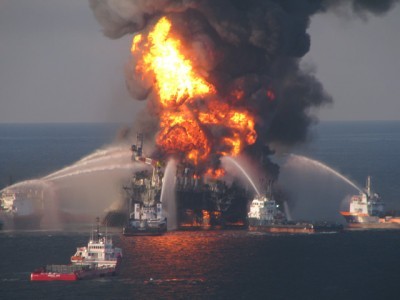
Safety guidelines established in the wake of the Deepwater Horizon disaster have been further updated and revised by North Sea industry body Oil and Gas UK (OGUK).
Eleven people died during a blowout in 2010 at the BP operated Macondo prospect in the Gulf of Mexico.
For many veterans working in the North Sea, the tragedy echoed the Piper Alpha disaster, in which 167 people were killed back in 1988.
Oil and Gas UK, the leading trade organisation, hopes to build on the lessons learned in both accidents to improve well safety by continually revising guidelines in line with the most recent findings.
OGUK operations optimisation manager Katy Heidenreich said: “The guidelines and their scheduled revisions are part of industry’s response to the Macondo incident in 2010.
“They build on the goal-setting safety regime of the UKCS which has matured since Piper Alpha, ensuring that the UKCS continues to maintain the high safety and technical standards it is known for across the world.”
The suite of updated guideline ultimately aim to ensure the safety of offshore wells and underline industry’s commitment to continuously improve, Oil & Gas UK said.
The guidelines are written by industry, for industry, and provide a true reflection and balanced perspective on good practice.
They were devised by the Oil & Gas UK’s wells forum stakeholder body.
Ms Heidenreich added: “Oil & Gas UK is grateful to the wells forum for their continued engagement and expertise. The guidelines are a prime example of the industry collaboration that our basin is becoming widely acknowledged for.”
Of the three guidelines, two are competency based, with one aimed at assessing, managing and developing competency of wells personnel and teams and the other aimed at ensuring the competence of Well Examiners.
Guidelines for competency of well operators and wells personnel were updated as part of a scheduled review process.
Guidelines for operators on well examination has also been updated to reflect changes to safety regulations.
Ms Heidenreich said: “The competency guidelines were introduced to address the core competencies for the key roles required to support safe and effective well operations. These are particularly important at a time when the UKCS is experiencing flux in the profile of its workforce.
“It is an important reflection of industry’s ongoing commitment to safety and best practice.”
Recommended for you
